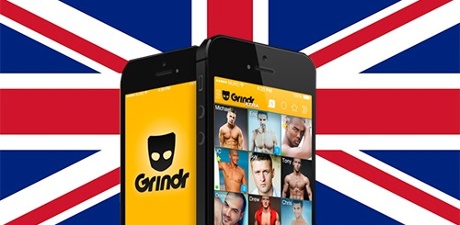
Forget Ipsos Mori, YouGov and ICM; it turns out the most accurate predictor of the Scottish referendum result was Grindr, the hook-up app for gay and bisexual men.
By now it’s clear that Scotland has voted 55% to 45% to remain as part of the United Kingdom, but Edinburgh’s gay men could have told us that yesterday.
Tom Court asked users of the app located in the Scottish capital how they were planning to vote in the referendum – which is certainly a better opening gambit than “a/s/l?”
Court’s findings predicted a 56% no vote, according to a sample of 655 men. This was a more accurate prediction than many of the final night polls. Ipsos Mori’s final poll gave the no camp a 53% lead, as did Survation; YouGov predicted 52% to 48%.
Court has broken down the figures into two groups: men whose avatars were of their faces, and those whose avatars consisted of, er, other parts of the anatomy. Or, as he calls it; “the headless torso demographic”.
Interestingly, the “headless torso demographic” voted for independence, with 51% of the vote going to yes.
Some Grindr users – the app describes itself as “the largest and most popular all-male location-based social network out there”– seemed somewhat perplexed to be asked about their stance on politics.
Many, however, seemed more than happy to give an answer, or engage in debate:
Grindr wasn’t the only social networking platform which hinted at the outcome of the referendum. Facebook introduced the “I have voted” button, similar to the 2008 US elections. The official yes campaign page racked up over 335,000 “likes”, opposed to 223,000 for no.
Twitter also tipped towards a yes result. The Twitter government account collated hashtag data and mentions. More than 1.55m hashtags related to the yes campaign have been tweeted since 5 August, against 500,000 related to no. Below is a real-time graph of tweets relating to the referendum campaign:
The prevalence of support for yes on social media isn’t too surprising, given social media’s popularity with the 16-24 demographic – younger votes are overwhelmingly thought to have voted yes. This contrasts with traditional polling companies, who frequently quiz people via telephone. Older people, who are no voters on the whole, are more likely to have landlines.
It’s clear that social media and mobile apps could play a huge part in future political polling – and should do. Waracle Ltd created the Referend-um app to exactly this end; it’s just a shame it didn’t work as well as it should have done. Or work at all. It’s the prototype of polling though. That, and maybe Grindr.

